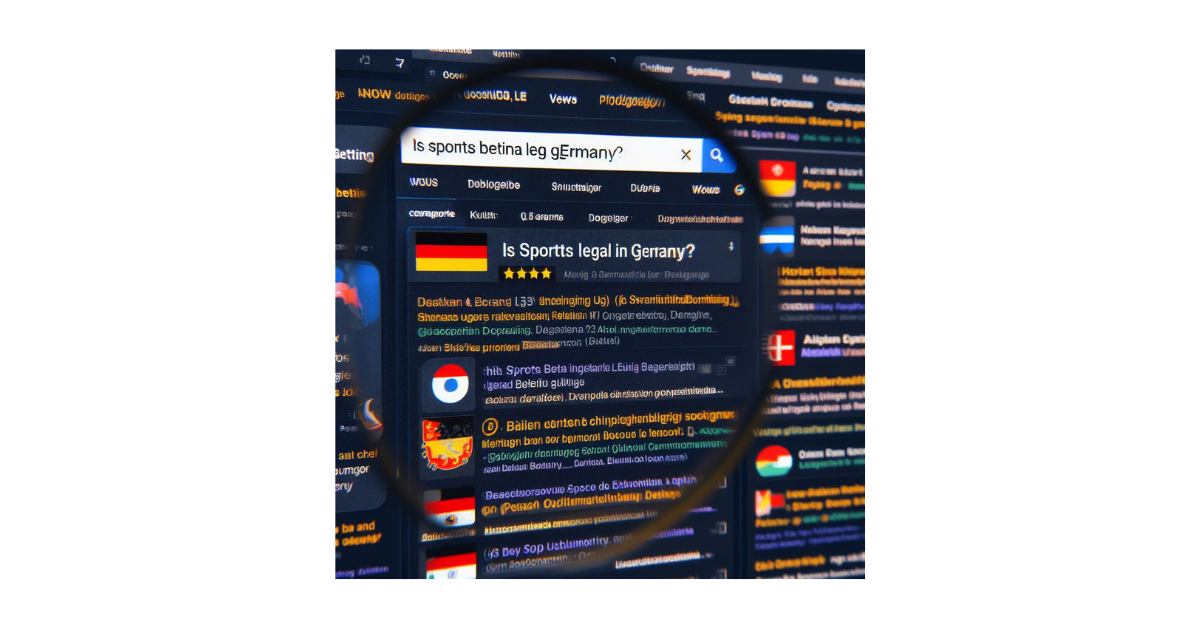The Legal Framework for Sports Betting in Germany
Germany has a well-defined legal framework for sports betting, governed primarily by the Interstate Treaty on Gambling. This treaty outlines the regulations and requirements that operators must adhere to in order to offer sports betting services in the country. Additionally, the Glücksspielstaatsvertrag (Gambling State Treaty) plays a crucial role in defining the legal parameters for sports betting activities in Germany.
The legal framework for sports betting in Germany aims to ensure that operators operate in a fair and transparent manner, protecting consumers from potential risks associated with gambling. By enforcing strict licensing requirements and regulations, the government seeks to safeguard against issues such as money laundering, match-fixing, and problem gambling. This framework also serves to create a level playing field for operators, promoting healthy competition within the sports betting industry.
The Role of Licensing Authorities in Regulating Sports Betting
Licensing authorities play a crucial role in maintaining the integrity and fairness of the sports betting industry in Germany. These regulatory bodies are responsible for overseeing the licensing process for operators, ensuring that they comply with the relevant laws and regulations. By issuing licenses, these authorities can help to protect consumers and uphold industry standards, creating a safer and more reliable environment for sports betting enthusiasts. Moreover, these bodies also have the power to investigate and penalize operators who fail to meet the required standards, thereby deterring illegal and unethical practices within the sector.
In addition to issuing licenses, licensing authorities are tasked with monitoring and enforcing compliance with the regulations governing sports betting. By conducting regular audits and inspections, these bodies can identify any potential breaches and take necessary actions to rectify them. This oversight helps to promote transparency and accountability within the industry, fostering trust among stakeholders and promoting a level playing field. Ultimately, the role of licensing authorities is essential in safeguarding the interests of both operators and bettors, ensuring that sports betting remains a regulated and responsible form of entertainment in Germany.
Key Regulations Governing Sports Betting in Germany
When it comes to sports betting regulations in Germany, one of the key aspects is the restriction on the types of bets that can be offered. Only fixed-odds sports betting is permitted, meaning that bets with fluctuating odds, such as in-play betting, are not allowed under the current regulations. This limitation aims to minimize the potential risks associated with more volatile forms of betting.
Additionally, there are strict requirements in place concerning advertising and sponsorship by sports betting operators in Germany. Advertising must be undertaken in a responsible manner, avoiding any promotion that could be seen as targeting vulnerable individuals or minors. Furthermore, sponsorship agreements with sports teams or events must adhere to specific guidelines to ensure transparency and integrity within the industry.
The Impact of the Interstate Treaty on Gambling on Sports Betting
The Interstate Treaty on Gambling in Germany has had a profound impact on the sports betting industry within the country. The treaty, aimed at regulating gambling activities to prevent addiction and fraud, sets strict guidelines for operators offering sports betting services. Under the treaty, operators must adhere to licensing requirements, advertising restrictions, and responsible gambling measures to ensure consumer protection and maintain the integrity of sports betting.
Additionally, the Interstate Treaty imposes limitations on the types of bets that can be offered, such as restrictions on in-play betting and limits on betting options. These regulations aim to minimize the risks associated with excessive gambling behavior and match-fixing scandals. Despite some criticism from operators regarding the restrictive nature of the treaty, it plays a vital role in creating a fair and transparent sports betting market in Germany.
Challenges Faced by Sports Betting Operators in Germany
Sports betting operators in Germany are confronted with a multitude of challenges in navigating the regulatory landscape. One significant hurdle they face is the strict advertising restrictions imposed on them, making it difficult to attract new customers and compete effectively in the market. These restrictions limit the ability of operators to promote their services, hindering their growth potential and putting them at a disadvantage compared to operators in other countries with more relaxed advertising regulations.
Moreover, sports betting operators in Germany also struggle with high taxation rates on their revenue, which significantly impacts their profitability. The hefty taxes imposed on operators eat into their earnings, making it harder for them to invest in expanding their services or offering competitive odds to customers. This financial burden limits the ability of operators to innovate and improve their offerings, ultimately stifling their ability to thrive in the competitive sports betting industry.















